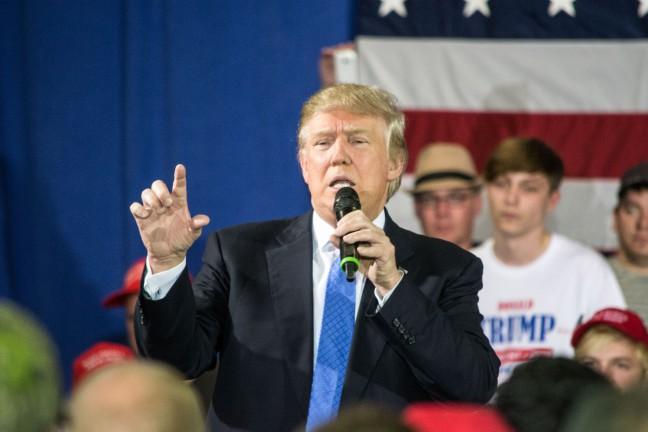With roots dating back to the first century hatred of Jews, referred to today as anti-Semitism, is hardly a new phenomenon. From the Crusades to the Inquisition to Russian pogroms and, most infamously, in the Holocaust, anti-Semitic ideology has survived the test of time, and continues to rear its head in 2017.
Tuesday morning, along with at least six other Jewish community centers across the country, The Harry & Rose Samson Family Jewish Community Center in Whitefish Bay received a threatening phone call that caused the facility to evacuate and close its doors for several hours. This incident is just one of many, with 69 threats at 54 Jewish community centers across the country in the past two months.
In the wake of these attacks, President Donald Trump has remained relatively quiet, dodging the vast majority of questions regarding the rise in anti-Semitic crimes. In a news conference Jan. 16, Jake Turx, a reporter for Ami magazine, an Orthodox Jewish weekly, voiced his concern with the Trump administration’s radio silence regarding the issue.
“What we are concerned about and what we haven’t really heard being addressed is an uptick in anti-Semitism and how the government is planning to take care of it,” he said.
This was the second time in as many days Trump was directly asked to address and denounce the crimes targeting Jews, and the second time in as many days that Trump failed to do so. The first time Trump was asked to comment on anti-Semitic crimes, he chose instead to boast about his Electoral College victory and the fact his grandchildren are Jewish.
The second time, following Turx’s question, Trump responded by dismissing Turx and subsequently attacking the press.
“[That’s] not a fair question. Sit down … just shows you about the press, but that’s the way the press is,” Trump said.
This was not the time for Trump to launch one of his attacks on the press. This was not the time to whine about a question not being “fair” — whatever “fair” even means to Trump. As president, this was Trump’s window to denounce blatant hate crimes that are sweeping the country he is now supposed to be running. Instead, Trump took his sweet time in releasing a statement, waiting five days after the debacle with Trux, and until another wave of threatening phone calls swept across the U.S. to issue any sort of statement condemning the crimes.
“The anti-Semitic threats targeting our Jewish community and community centers are horrible and are painful and a very sad reminder of the work that still must be done to root out hate and prejudice and evil,” Trump said following a tour of the National Museum of African American History and Culture.
But is this enough? There’s no doubt these attacks are horrible, painful and a very sad reminder this country still has leaps and bounds to go to eliminate racist and bigoted ideologies.
As president, however, Trump has the responsibility of making it known to the American people that he and his administration will not tolerate hate crimes against anyone, and he didn’t do this. He waited until almost 70 threats were made until issuing a clearly staged and impersonal statement about crimes that affected hundreds of Americans.
Trump cannot be blamed for these attacks, as they cannot be explicitly linked to his election or his inauguration. With this said, Trump’s populist, conservative rhetoric, which is mirrored by leaders such as France’s Marine Le Pen and Russian President Vladimir Putin, attracts ardent anti-Semitic supporters who interpret these candidates’ platforms as condoning hate crimes against Jews.
By not expressly addressing the rise in anti-Semitic threats and crimes, Trump reiterated to this group of supporters their hate and their actions are going to go relatively unpunished, at least for now. Once again, Trump said too little, too late.
Aly Niehans (aniehans@badgerherald.com) is a freshman majoring in international studies and intending to major in journalism.


